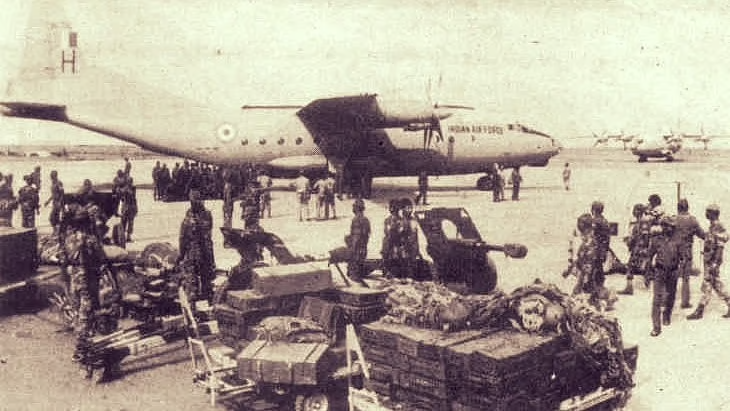
Operation Cactus: How India Thwarted the 1988 Coup in the Maldives
A small island nation facing the threat of a coup: how would they respond? This is the story of the 1988 Coup in the Maldives and of Operation Cactus, the response that ensued.
Before I begin, let us first look into a short history of the Maldives, and how they arrived in this situation. The Maldives, or the Republic of Maldives is located off the coast of India, and is the smallest country in Asia. For centuries, the nation was ruled by ancient dynasties in its capital Malé. In 1887, the Maldives became a British protectorate, a status it maintained until gaining its independence in 1965. Two years later, in 1967, it officially became a republic.
In 1978, Maumoon Abdul Gayoom was elected president of the Maldives. He came to power through a democratic election, and was widely regarded as a popular president of the nation because he propelled the Maldives into a period of economic development and relative stability. Despite his popularity and achievements, the first years of his time in office were marked by political unrest. There were multiple coup attempts, taking place both in 1980 and 1983, though they were quickly put down and were not seen as a real threat to the stability of the nation. That changed in 1988, however, when a far more serious coup attempt took place. This one prompted a bold and swift military response from neighboring nation India, and came to be known as Operation Cactus.
On the morning of November 3rd, at around 4:30 AM, fighters of the People’s Liberation Organization of Tamil Eelam, a militant organization based in Sri Lanka, approached the capital city of Malé in the Maldives. They had come to the island nation via hijacked freighter ships from Sri Lanka, and entered the city easily disguised as civilians. The militant mercenaries being used to orchestrate the coup were heavily armed. They entered the capital city with the primary goal of overtaking the National Security Service headquarters, the president’s residence, and the infrastructure in the capital.
The group of mercenaries, funded by Maldivian businessmen, headed toward the Presidential Palace. Before they arrived there and could get a hold of President Gayoom, however, Gayoom was warned of their presence in the country and was escorted to a safe house. Despite not being able to get Gayoom in their custody, the mercenaries still forcefully took control of the Presidential Palace, the national radio station, and more. They had also taken the Education Minister hostage.
Unlike the previous coup attempts of 1980 and 1983, these mercenaries had not been thwarted in their plan to infiltrate the capital city. For this reason, they were seen as a true threat to the Maldives, and President Gayoom determined he would need backup to retake control of the nation. The most eager nation to help get the conflict resolved was India, whose Prime Minister organized a meeting to discuss the crisis just a few hours after news of the coup had been passed along.
India and its forces then created the crucial project “Operation Cactus” to quickly put a stop to the coup. On the evening of November 3rd, the operation began. Two large Ilyushin IL-276 aircrafts carrying Indian troops were flown into the main airport in the Maldives. The swift arrival of Indian troops took the mercenaries by surprise, forcing them to retreat quickly from the Presidential Palace. Some of the mercenaries headed directly back toward the hijacked freighter ship they had come to the Maldives on. This ship was quickly intercepted and stopped by the Indian Navy, capturing the mercenaries that had tried to escape.
The rest of the militants who had not made it to the freighter in time also attempted to flee, but got caught up in fighting with the Indian troops on land. There were 19 reported casualties in this fight, most of whom were said to be mercenaries.
Ultimately, Operation Cactus was a success, effectively putting a stop to the attempted coup and restoring stability to the Maldives. The businessman who was behind the coup operation as well as the mercenaries involved were sentenced to life imprisonment.
Not only did Operation Cactus help restore stability and rightful rule in the Maldives, but it also set the foundation for stronger relations between India and the island nation in the coming years.
This was the Politics… stay tuned for the Dinner!


You May Also Like

The War of the Stray Dog
15 March 2024
Stamppot Shepherd’s Pie
16 September 2025